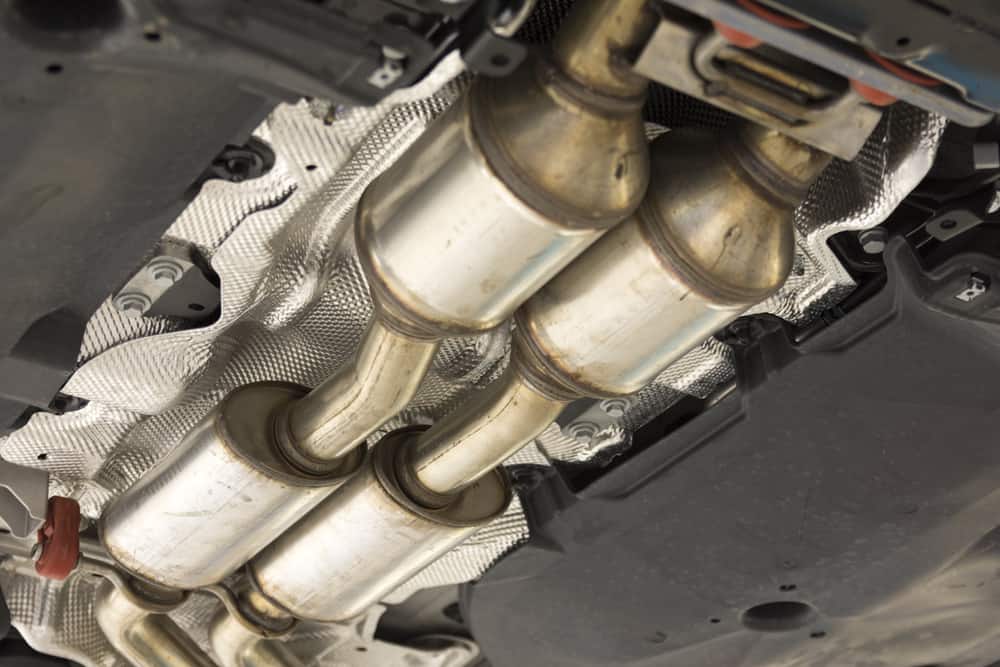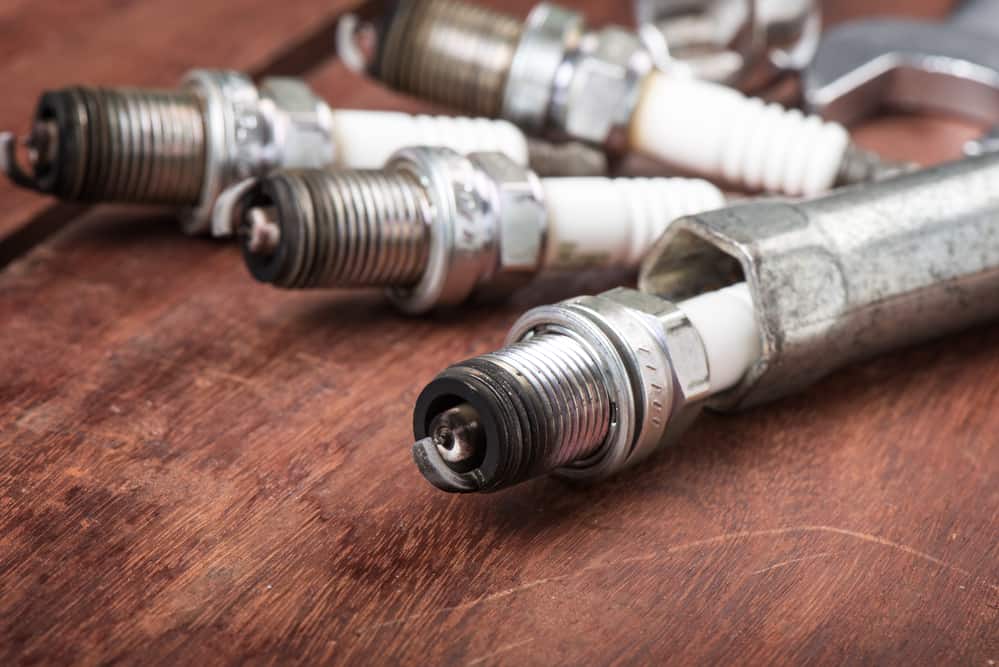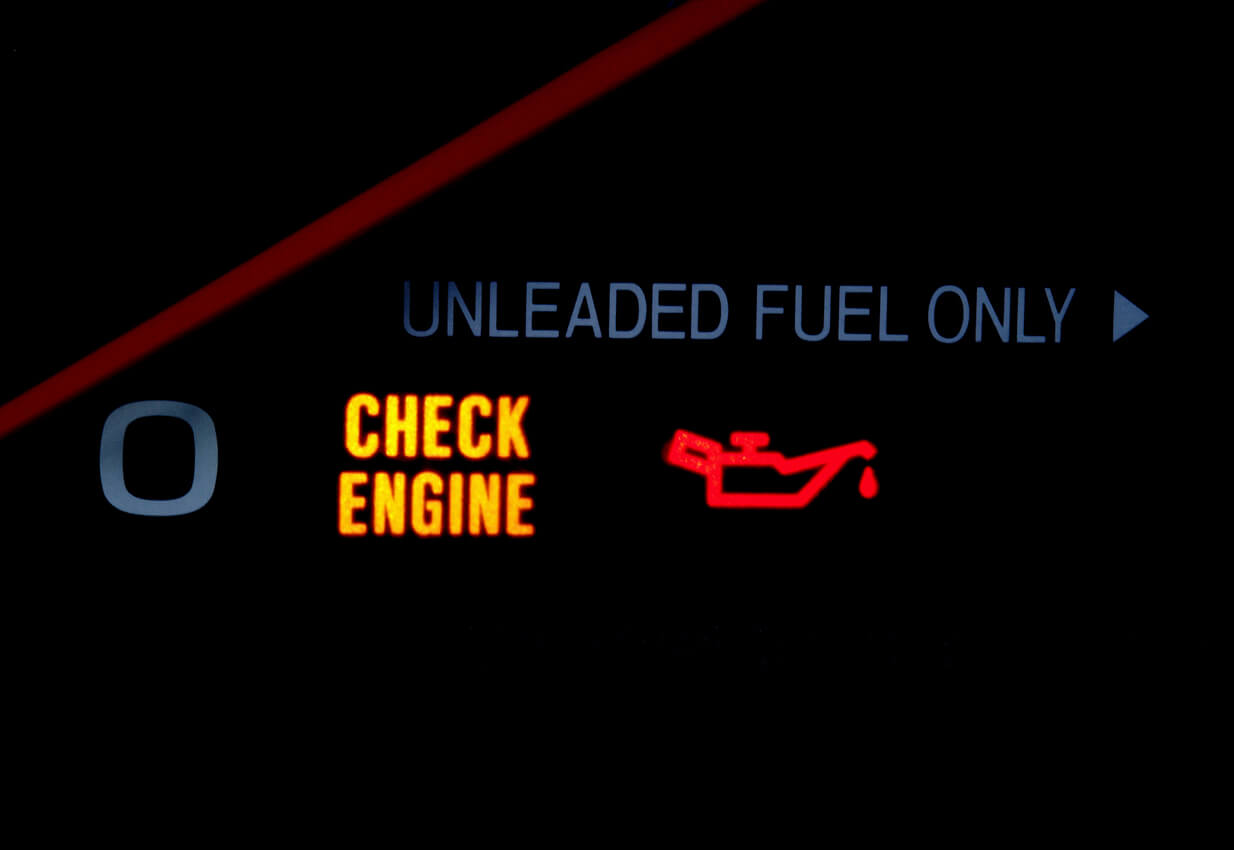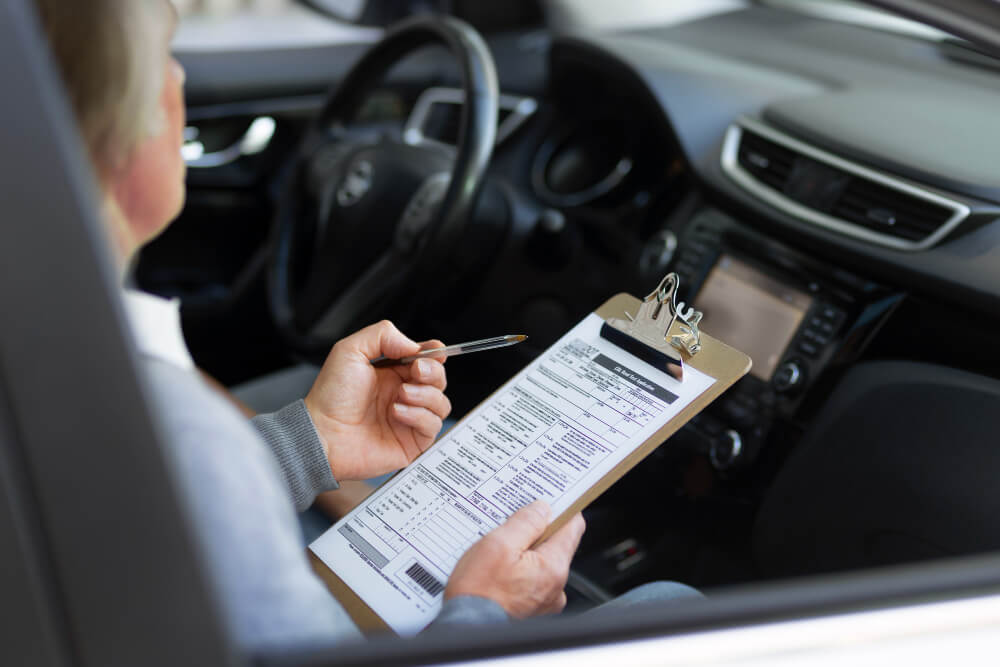On average, people spend about $9,282 every year to maintain their cars, and while this is only considering general maintenance, it’s not including the “what ifs” of having a vehicle. There are a variety of factors that could contribute to unplanned spending on a vehicle outside of maintenance. A lot of those unplanned factors could derive from warnings that are presented to the driver before the damage actually occurs.
What’s interesting is that at least 64% of people have said that when their check engine light turns on, they ignore it for at least a week. Around 30% give it about a month before having it checked, and there’s also a noticeable amount of car owners that don’t bother having the issue checked out by professionals at all.
Stalling to find a solution is one of the top ways to drive up maintenance costs, increase your chances of having to pay an initial cost, and also present unnecessary wear and tear on your vehicle. Let’s talk about what the check engine light actually means when it comes on, some potential fixes for it, and what could happen if you decide to ignore the warning.
What Exactly Does the Check Engine Light Mean?
What does the check engine light mean? When the powertrain or engine warning light turns on, it could mean a variety of things. It also doesn’t have to equate to a serious issue like a misfiring engine, as it could very well be something minor.
When your vehicle presents a potential problem, the car’s computer will notify you and the check engine light will come on. Either the transmission or the engine usually associates with these issues.
Regardless of whether you assume the issue may be minor or not, when the check engine light is on, it should always receive immediate attention. The simple reason is that you don’t know the exact cause of the warning.
It could be something very simple like a loose fuel cap or that you need a slight auto repair. Or, it could be a warning that your car is overheating or that your catalytic converter is faulty.
The onboard computer system will trigger warning lights to the dashboard when a vehicle is at risk of a dangerous issue, such as an engine misfire, which requires more attention to the car’s engine.
What Does It Mean When Your Check Engine Light Is Flashing
Oftentimes, one of the most common reasons to see a check engine light flashing is a faulty oxygen sensor (O2 Sensor). This is what’s responsible for providing measurements for the amount of unburned oxygen that’s actively in your exhaust system.
Your vehicle might present with an unsettling or rough type of sound when idle. Also your engine’s combustion intervals will also be affected.
The same goes for the engine’s timing, and general functionality, as a bad oxygen sensor affects whether you can drive it or not.
Usually, if your vehicle relies on using electronic controls for your engine, this means that you can’t drive it until the fix has been implemented. Aside from a faulty oxygen sensor, there are a few other things that could be common causes of the engine light illuminating.
Loose Gas Cap
A loose gas cap or a faulty one is a very minor issue. People often need to re-tighten the cap when it becomes loose. Completely tightening the cap will fix this problem.
Replacing the cap altogether is another simple fix if the caps themselves are worn and won’t hold a seal as they should. What you want to keep in mind is that while a loose or faulty gas cap is a simple fix, you don’t want to ignore it. Without your fuel system being properly sealed off, it will be more at risk of contamination from external elements like dirt.
Any type of grime buildup within your engine’s fuel injectors could cause an imbalance in fuel mixture. This will usually be an imbalance between fuel and air which will often result in a variety of issues.
Dirt or any such build-up in your fuel system could result in needing to go to a repair shop among other things like;
- Making it more difficult for your engine to start up
- Decrease in engine performance
- Complete lack of engine power
- Inconsistent gas mileage
- Misfiring or backfiring
These are just a few things that a buildup of external deposits could cause over time. Not only will this act as an inconvenience to you, but it will also end up lowering the resale value of your car. This could potentially pose a high upfront cost to fix any resulting issues as well.
How Do You Know When There’s a Buildup?
There are a few ways to know if your fuel filter is clogged or if you’re fuel system is experiencing a buildup of grime. Try paying attention to whether your vehicle is presenting any loud noises. If those loud noises are coming from the fuel pump, this could be a red flag of a clogged fuel filter within the system.
Additionally, if your car is misfiring or different components within your fuel system are failing, these are other signs that you will want to pay attention to. Also, if you are used to reaching certain speeds within a quick amount of time, pay attention to this as well.
If you notice that you were having issues with your car is frequently idling, this is another negative sign as well. The same goes for any strong odors that you might notice.
Faulty Catalytic Converter

The Catalytic converter of your vehicle is a component of your exhaust system. Its main job is to convert pollutant gases into gases that are less harmful. Essentially, it’s job is to convert carbon monoxide into carbon dioxide.
This can be an expensive replacement project, but if you know what to look for, you can offset a lot of the costs by fixing issues as they arise rather than allowing them to cause others. Oftentimes though, the light may indicate car maintenance is needed rather than a full replacement.
If your check engine light comes on, it doesn’t mean that your catalytic converter is completely broken. It could also mean that it has melted or that it has simply overheated. Regardless, without checking on this issue to identify the problem, a bad catalytic converter could result in a few things, from lowered engine performance to back pressure, that you will notice.
If your engine light comes on and you’re wondering if your catalytic converter could be the issue, pay attention to whether you hear any rattling noises. Also, pay attention to whether you start to get poor gas mileage all of a sudden.
Additionally, unusual exhaust and the smell of sulfur from the exhaust itself are two telltale signs that your catalytic converter could be the issue. You will also want to keep in mind that driving without a catalytic converter in your vehicle is technically illegal in all 50 states.
If it is damaged in any way, the converter could be giving off higher emissions than a certain state might allow. This also means that your vehicle more than likely will have a poor emissions system and will not pass state inspection. This would mean that your emission control system needs to be checked immediately.
Bad Spark Plugs

If your spark plugs are worn, this isn’t the biggest problem, as it’s more of a simple fix. The reason why you want to ensure that they aren’t worn and that you get a replacement if you need one is that it will help you to maintain the best gas mileage that your vehicle is capable of. It will also help to maintain your vehicle’s performance.
If these plugs are worn, it just means that the spark that is responsible for powering your engine will have a much harder time igniting. A lot of the time, your battery will be to blame if there is no power to your vehicle. If your check engine light goes off, it could also be an issue with not just your spark plugs but the bad spark plug wires themselves.
If you want to determine if your spark plugs are bad, a few common symptoms would be things like;
- Your check engine light has come on
- The engine presents a lot of noise
- Poor fuel economy
- Issues with starting the vehicle
You can technically drive if your spark plugs are worn, but you should be warned that your emissions will increase. This could cause failure of an emissions test. Also, your fuel consumption will increase.
This is due to incomplete combustion, and over time, without the issue being fixed, your vehicle is at a higher risk of dying. Also, worn spark plugs can cause death of your ignition coil altogether so this issue shouldn’t go unsolved for too long.
Problems With the Cooling System
If your check engine warning light comes on, it could just mean that you have low coolant levels or poor lines or connections coming from the system. It could also mean that your radiator is leaking or that you need to replace the antifreeze in your radiator. Pay close attention to whether your thermostat is functioning properly and if the water pump within your vehicle is operating as it should.
You will know if your cooling system is presenting with issues, if your check engine light is not going off and your engine is continuously overheating or if the vehicle has low fluid levels after you have topped them off.
Fuel System Issues
When your warning light comes on, it could mean you have a simple exhaust gas leak. You will get a check engine warning if your vehicle fuel system is experiencing a current or potential failure. With this, you will notice that you might hear a whining noise coming from the fuel tank or that your car has a complete lack of power.
Try paying close attention to whether or not you have any fuel that’s leaking and if you have a sudden loss in gas mileage. The engine sputtering is another common sign of this and will usually happen if you’re driving at faster speeds.
Also, you should be checking on your mass airflow sensor. This is a key addition to all electronic fuel injection systems. The car will start to jerk or stall if the MAF is faulty.
You Need to Check Your Engine Oil
You commonly think of needing an oil change when your check engine light illuminates. Low oil pressure could cause serious engine problems. The easiest way to know if it’s time for an oil change is to pay attention to when your last oil change was. A good rule of thumb is that you need an oil change at least every 3000 miles.
This will come around every six months unless you are driving excessively. To know if you need an oil change, you can check your oil levels and take notice of whether you feel consistent vibrations when your car is idling.
Also, common signs that you need an oil change are whether you have problems when you’re trying to change gears and if the oil that is currently in your car has an odd texture or not. Visiting your nearest dealership will often solve this problem with little downtime.
What Could Happen if You Ignore the Check Engine Light
Whenever the check engine light comes on, the longer the issue goes unsolved, your vehicle will try to compensate for what’s wrong. This means that your car is putting out a lot of power and strain. This will ultimately lower performance and cause other issues.
This will also make it more likely that a car repair will be needed. At most, if you cannot tend to the check engine light right away, the common rule is to only drive no more than another 50 to 100 miles. After 100 miles, you should be using an onboard diagnostics system to help determine the issue.
Car’s obd-ii port is a good example of a diagnostics system that is reliable. In this case, using a diagnostic trouble code or DTC will help you to diagnose any malfunctions within your vehicle before it turns into worse problems. You can usually find a scan tool or code reader for light diagnostic testing your vehicle’s computer system at your local auto parts store. Additionally, there are several inexpensive code readers that are made specifically for do-it-yourselfers.
Solutions for Your Automotive Concerns
When you need to shop for a car, sell one, or maintain one you need to have a designated team to work with illuminated check engine light. Schumacher Used specializes in helping you do all of the above and far more throughout Northern New Jersey.
If you’re in the market for the perfect car, you also need to have a place to extend its lifespan and maintain the power that it has. Schedule the service you need at our service center today and take the worry out of the equation.




